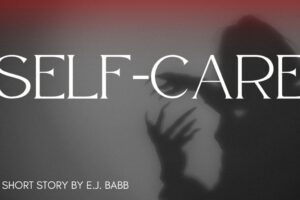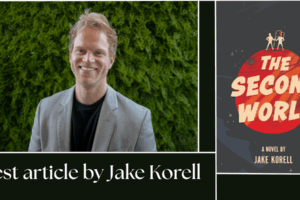Life isn’t so simple as to be defined by the terms ‘utopia’ or ’dystopia’.
The term ’utopia’ is widely accepted to mean a social environment in which everything is perfect. A ‘dystopia’ is therefore the opposite of this; a social environment in which everything is imperfect, and this is commonly represented in dystopian literature with the inhabitants being subjected to an unfair, heavily restricted lifestyle.
Human societies are immensely diverse, and it seems incredibly unlikely that a system could be created in which the sociological structure is built on entirely negative foundations. What seems more likely is that a dystopian world is completely subjective, and the authors of this genre of fiction heighten the importance of certain societal traits in order to express their own views of what is good and what is evil. A dystopia would not be a dystopia to everyone.
Totalitarianism and communism are not strictly dystopic.
In the aftermath of Word War Two, the literary world was rife with science fiction that reflected the evils of a certain tyrannical dictator. For instance, George Orwell worked tirelessly for the war effort and, if one compares Adolf Hitler to Orwell’s Big Brother, it’s hard not to detect points of origin in the writer’s iconic creation.
The war inflamed not only the imaginations of the novelists but also the media, politicians, movie makers, songwriters and so on. Communism became enemy number one, you only need to see a handful of subsequent decisions made by America to realise this. Even today communist countries are often seen on the news as stiflingly controlling places, but this is simply not the case. Orwell and his peers certainly did the job of warning the world about the threat of totalitarianism and communism, to the point where I don’t think it could ever be the catalyst of a dystopian world any more.
Pluralism doesn’t seem to be taking over individualism.
A big theme within dystopian novels is the idea that the individual will be overtaken by the needs of the many. Although consumerism has meant that many people dress the same, know the same things and follow the same interests, the rise of technology has meant that people are able to remain alone while simultaneously connecting and communicating with the rest of the world. ‘Community’ has become an old-fashioned word, and it would take a great deal of change for individual citizens to begin working for the needs of others rather than just for themselves. Selfishness is the horror of today, there is no current risk of us becoming faceless, mindless or selfless.
Political correctness protects us from an inhumane government.
Many would argue against the above statement, but if we honestly compare our political situation with not only that of fictional dystopias but also with the realities of the third world, it is evident that the institutional offenses that occurred in our history have made it almost impossible for inhumane actions to go unnoticed. Although recent bouts of terrorism have created antagonistic feelings toward the Muslim faith at a predominantly social standpoint, no political or governmental actions towards practicing Muslims would ever be allowed to take place. Thankfully, although we currently live in a world where anyone walking past a playground is seen as a paedophile or anyone placing a backpack on the floor is a potential terrorist, at least we can have faith in the fact that as soon as someone is unjustly arrested or killed, there will be an enraged uproar from people jumping on the moral bandwagon.
Further reading:
The probability of a dystopia
Are we already living in a dystopia?
Dystopia and Science Fiction: Blade Runner, Brazil and Beyond



Leave a Reply